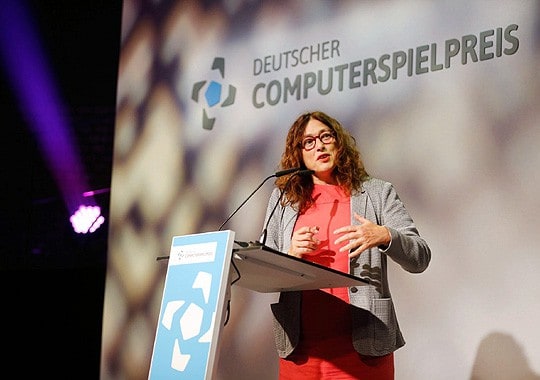
Monika Griefahn in 2015 at the award ceremony of the German “Computerspielpreis”.
Photo (archives): Franziska Krug/Getty Images for Quinke Networks
Just ahead of the recent general elections the German Cultural Council issued a gratifying news release: “The Chancellor and the Secretaries-General of the CDU, SPD, Greens, the Left and the FDP consider computer games to be a cultural asset”, it announced. For a long time that was far from self-evident. As little as ten to 15 years ago efforts to broaden the cultural concept to include computer games were met with unconcealed resistance.
As a member of the Bundestag back then I and other members of parliament worked hard to establish the view that beyond the so-called shooters there are plenty of other, more valuable games. At the time public acceptance of this opinion was anything but universal. Nowadays the market for educational games, strategy and skills games is enormous. Basically, any activity on a mobile phone resembles a small computer game today – nobody would assume that this could be harmful somehow. Finally this year at Gamescom, the German trade fair for digital games, Chancellor Angela Merkel said something that many of us had already recognised ten years before: digital games can foster skills such as speed and logical thinking. Moreover, Angela Merkel said computer games were “a cultural asset” and “of paramount importance as a driver of innovation as well as an economic factor.” She added that around 500 companies with approximately 29,000 employees were active in the industry in Germany and that they had generated sales of over one billion Euros in the first half of 2017.
Only ten years ago we had to struggle to establish such a favourable perspective on the industry. The discussion among the German public back then was almost exclusively focused on the influence violent games may have on real-life perpetrators of violence. A conversation about potential positive aspects of digital games simply didn’t take place. The head of the German Cultural Council, Olaf Zimmermann, provoked public outrage when he wrote: “The debate about violence in computer games should not be exaggerated. Provided they remain within the law, adults should have the right to look at tastelessness and trash, or to play the equivalent games. Freedom of expression and artistic freedom are among the basic legal principles that have been enshrined in the constitution. Artistic freedom is not dependent on the quality of the work. Artistic freedom also applies to computer games.” Not only did Zimmermann offer his protection to games developers with these words, he also put them on the same level as artists. If someone is able to create a virtual world and if he has sufficient imagination to convert it into a playable computer game, then what are they if not an artist?
As parliamentarians we tried to change the debate around computer games and to open the eyes of the public to all the positive aspects of the games industry. An important step was the creation of the German Computer Games Awards, which we launched in co-operation with the digital industry. However, until the present day the German Taxpayers Federation considers any federal funding in the sector to be a waste of money. It should ask itself where the industry in Germany – and its billions of Euros in sales – would be today if we still had to engage in the debates we had a decade ago. Moreover, the award has helped to establish the Foundation for Digital Games Culture that I helped set up and on whose advisory board I served for a number of years.
So, I am glad that the view of computer games as a cultural asset is increasingly being met with affirmation across all fractions today. Once again it shows that persistent commitment pays off and that meaningful change requires staying power.
 Monika Griefahn GmbH
Monika Griefahn GmbH
Leave a Reply